If you click on a link and make a purchase we may receive a small commission. Read our editorial policy.
The Fall of the House of Usher's ending explained
Mike Flanagan tackled the works of Edgar Allan Poe for Netflix; here's how everything worked out for the characters. (Spoiler: Not well!)
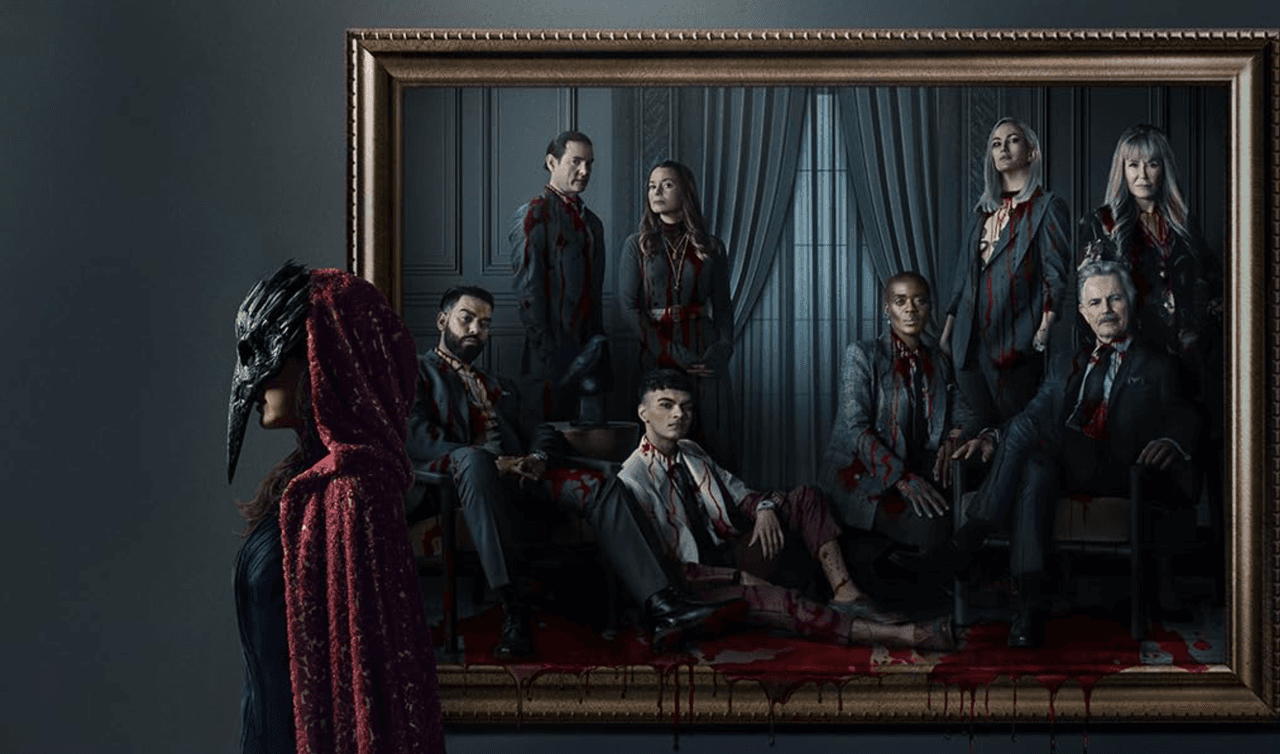
This article contains major spoilers for The Fall of the House of Usher.
Mike Flanagan is back at Netflix to delight and disturb your Halloween season with The Fall of the House of Usher. It's the story of a corrupt pharmaceutical giant and his unscrupulous family, told as an amalgamation of the great horror works of Edgar Allan Poe. With all episodes now streaming and a host of Flanagan fans no doubt already done binging, we thought we'd talk a littlt bit about that fearsome finale, which is why we've put together this spooky summation: The Fall of the House of Usher's ending explained.
Turn off the lights, pull up the blankets, and let's begin.
What is the The Fall of the House of Usher ending?
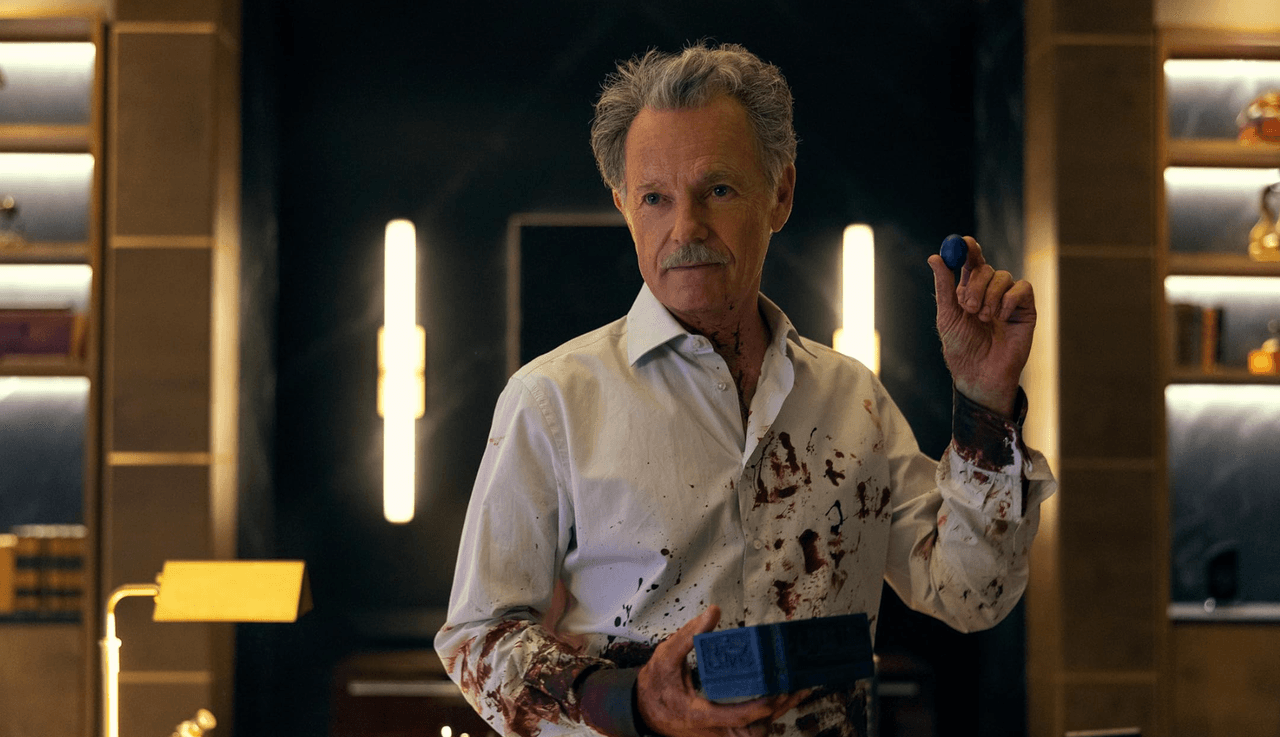
After seven chilling episodes of watching Roderick Usher's loved ones die, only to come back to him as gory phantasms, it is finally time to learn the truth behind the Usher family curse. Sitting in his dilapidated childhood home, patriarch Roderick Usher recounts to investigator C. August Dupin the tale of one particular "midnight dreary" - New Year's Eve 1979, when the House of Usher's first bloody brick was laid.
During the show's flashback segments, we learn of Roderick and Dupin's history. In the early days of his tenure at Fortunato Pharmaceuticals, Rooderick pretends to go along with Dupin's investigation into the company's deadly crimes. But at the last minute, Roderick betrays Dupin on the witness stand, saving the pharma giant from being prosecuted and earning himself a cushy place at the company's head. Then, the real dirty work begins.
At the Furtunato New Year's party, CEO Rufus Griswold approaches Roderick too congratulate him on screwing over Dupin. Griswold, already drunk, begins making passes at Roderick's sister and literal partner in crime, Madeline. The two abscond to the basement where Griswold discovers the Ushers have drugged him. When he wakes up, he is chained to a pipe, slowly being bricked into a wall by the Usher twins. Despite his threats, promises, and pleas, the twins continue their work, quite literally putting up a wall between the world and evidence of his murder.
All the while, in the present, strange sounds are coming from Roderick's childhood basement. Sounds even the unhaunted Dupin can pick up on.
Back to the past, Roderick and Madeline are at a different bar, celebrating their criminal masterstroke and establishing an alibi for the eventualy investigation into Griswold's disappearance. It's at this second bar that they meet a friendly bartender that takes an interest in the ruthless and ambitious twins. This character, played by Carla Gugino and mostly unnamed in the show, is credited as "Verna." At first, the two treat her as another alibi, but then the truth comes out: she knows all about Griswold's murder, down to the details of the coverup. But Verna's not there to report them. No, she's there to help them get away with it.
Oh hey, what's going on in the present, with old Dupin and Roderick? Well, those basement noises are getting a lot louder...
But first, it's 1980 again, and Verna is offering Roderick and Madeline a deal, the kind you only get from creatures not of this world. If they agree to it, the Ushers will fully get away with killing Griswold. In fact, they'll never face a single legal consequence, no matter what atrocities their burgeoning pharma empire does to make money. All that's required is an expiration date. When Roderick Usher dies, his entire family line, and Madeline too, must die with him. The twins agree, sealing the deal, in true Poe fashion, with a royal glass of cognac.
And now we come to it: Dupin, in the present, knows the full truth of the House of Usher. All of Roderick's horrible children have paid the price for his bargain, so too has his innocent and even heroic grandaughter Lenore. Roderick himself thinks his time to go is very soon.
But wait, what about - ?
Madeline, half-dead from a botched murder attempt, explodes from the basement door as the walls, ceiling, and floors of the Usher home begin to crumble. The twins grapple in mortal combat and Dupin, wisely, decides the interview is over. He rushes out of the building as it splinters to the ground, looking up to see an unearthly form presiding over the rubble. It is Verna, her account with the Ushers settled.
Will there be a Fall of the House of Usher Season Two?
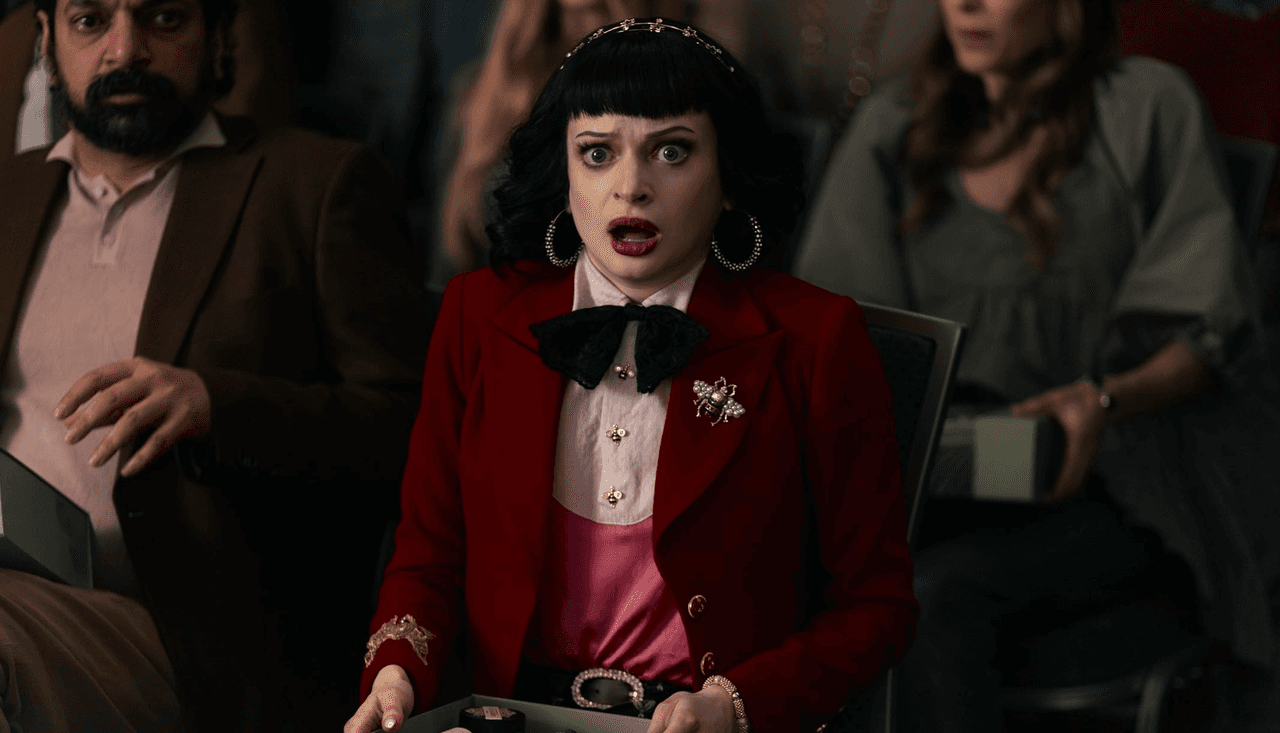
No. The show was announced as an eight-part miniseries and, as of this writing, neither Netflix, producer Intrepid Pictures, or Mike Flanagan have announced plans to return. Surprising absolutely no one who has seen the show, it appears the House of Usher is going to stay fallen.
What were The Fall of the House of Usher deaths?
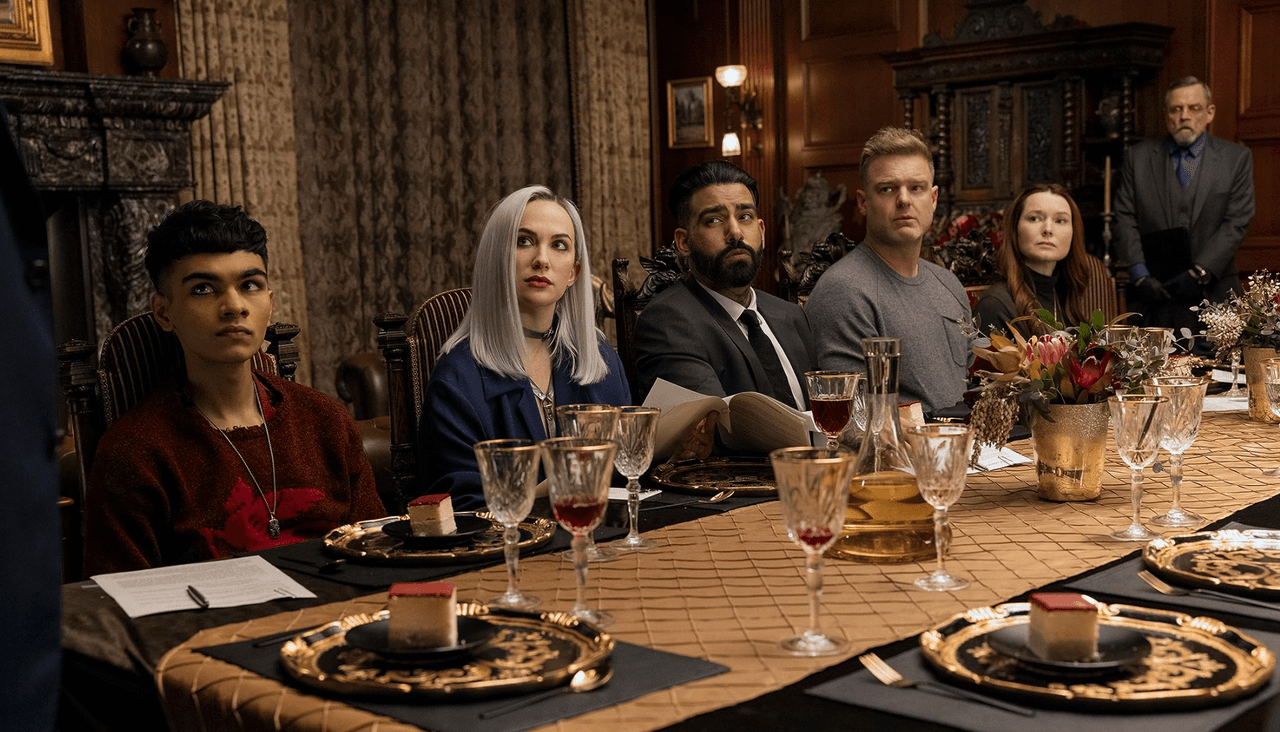
Oh, reader, who doesn't die in The Fall of the House of Usher? By the last episode, Perry has been melted by acid, Camille torn apart by chimps, Leo flattened on the pavement, Vic killed by her own hand, Tammy sliced to ribbons by broken mirror, Frederick pitted and pendulumed, and poor, poor Lenore taken mercifully and peacefully in her sleep. It's a body count to make George R.R. Martin jealous.
But in the last episode, the Curse of the House of Usher comes full circle to the two that let it into the world: Roderick and Madeline. And the way it takes them is particularly grisly. Roderick, fully convinced of his own doom, drugs Madeline with nightshade. Then, taking ancient Egyptian tools Madeline herself collected, Roderick goes to work giving her a Cleopatran send off - removing her eyes, brain and heart just like Pharoahs of old.
It doesn't stick.
Emerging from the basement to echo the ending of Poe's original House of Usher tale, Madeline, now more beast than human, attacks Roderick in a literal blind fury. As Roderick repeats, "Nevermore, nevermore," his sister and former ally wraps her hands around his neck while the building begins to fall, burying them both in the house where they were born.
At which point the audience, shuddering and crying, switches to The Great British Baking Show.
Once the charms of Cake Week calm our nerves, we can head back and count the survivors. Basically any major character that's not an Usher by blood makes it, including Frederick's wife Morelle, Tammy's husband Bill, and family lawyer Arthur Gordon Pym, though the latter faces a heap of legal woes. We are told he'll die in prison. A Dupin voiceover catches us up on a post-Usher world, pretty much wrapping every character arc on the show...
With one major exception.
Who is Carla Gugino in The Fall of the House of Usher?
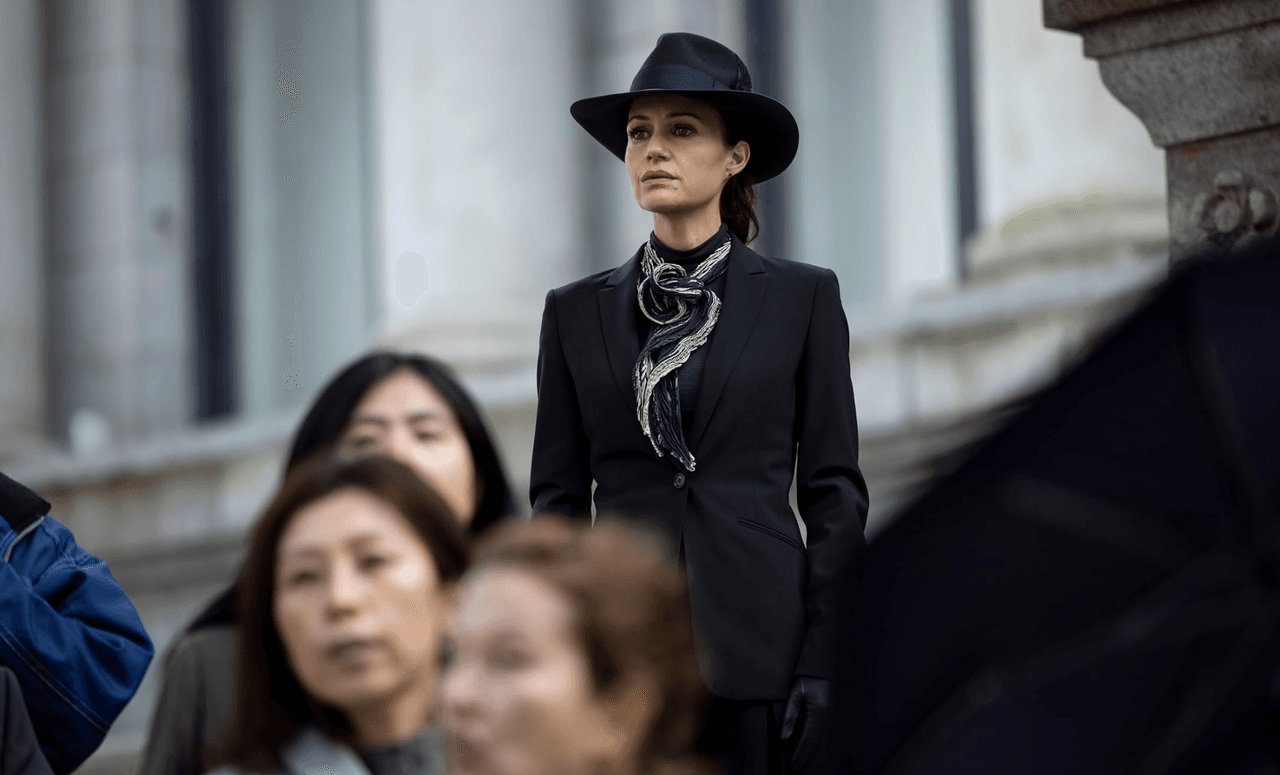
I have to admit, this is where the "Ending Explained" bit of the article starts to come apart. As of this writing, there is no precise answer as to the identity of "Verna," as Carla Gugino's character is credited, though there are a lot of hints. We'll get into them now.
First of all, we know that whoever Verna is, she's not human. Throughout the show, Verna proves to have supernatural power over the real world, psychically manipulating people's minds and the environments around them. However, she's not a traditional ghost, either. She shows up in photographs dating back over a century, and multiple non-Ushers come in contact and communicate with her.
Maybe the simplest answer is that Verna is the traditional idea of the Devil. She has great power, seems to deal in human suffering (even at one point calling that her "job"), and of course, makes a Faustian bargain with Roderick and Madeline. At the same time, Verna also drops hints that she's not the Devil we know. She rejects the idea of "soul-selling" entirely and, when the time comes to take Lenore, she shows genuine remorse, opting to give her a happy sendoff rather than maliciously plot her demise, as she does with the rest of the Usher line.
In fact, I think that the closest we get to Verna's identity isn't from her interactions with the Ushers at all, but from her final interaction with Arthur Pym. If you'll recall earlier in the series, Roderick tells Dupin that Pym had taken part in a deadly global expedition, at one point ending up in the North Pole. After this gloomy adventure, which is hinted to have involved horrible things such as murder, even cannibalism, Pym swears to a strange and supernatural idea idea about the Earth: that it is, in fact, hollow. But as to what makes him believe this idea? Even to Roderick, he'll never say.
Cut to the end of the show when, after a failed attempt at killing Verna, Pym is confronted by the supernatural entity at the Usher's childhood home. Much to his surprise, Verna reveals that she has been following the Usher family lawyer since his global expedition days, saying that, when she heard humans were at the North Pole, she had to come "top-side." Pym balks, and we get a partial answer to his greatest mystery.
Whatever Pym saw on the global expedition, whatever even an evil man like him was too afraid to even speak of... it was sitting across from him, fortelling the Fall of the House of Usher.
All eight episodes of The Fall of the House of Usher are streaming on Netflix now.
Looking for more frights this spooky season? Check out Popverse's Halloween Movie Recommendations For Every Type of Horror Fan.
Follow Popverse for upcoming event coverage and news
Find out how we conduct our review by reading our review policy
Let Popverse be your tour guide through the wilderness of pop culture
Sign in and let us help you find your new favorite thing.
















Comments
Want to join the discussion? Please activate your account first.
Visit Reedpop ID if you need to resend the confirmation email.